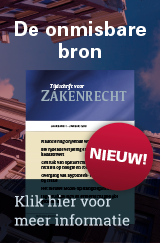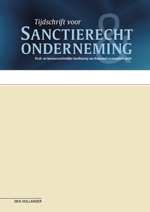Voorwoord
mr. E.Z. Perez en Victoria Figge-Cederkvist Het artikel is in de opmaak van het tijdschrift rechts als pdf beschikbaar.Beste lezers,
Het kon niet uitblijven natuurlijk, een themanummer met als onderwerp de Panama Papers. De papers houden de gemoederen over de gehele wereld al maanden bezig, journalisten hebben weer een mooie kluif om zich in vast te bijten, en vele ondernemingen en particulieren zitten ongetwijfeld onrustig te wachten op wat uit de hoek van justitie, al dan niet terecht, komen gaat.
Tijdens de 16e ‘Transnational Crime Conference’ van de International Bar Association (IBA), welk congres in mei 2016 in Panama plaatsvond (what are the odds..!) heb ik Victoria Figge Cederkvist ontmoet. Victoria is mede voorzitter geweest van een speciale commissie op het gebied van de ontwikkeling en implementatie van anti-witwasregelgeving in Panama, en zij was eind jaren ‘90 de eerste voorzitter van de Financial Analysis Unit in Panama, een overheidsinstelling zoals de Nederlandse FIU. Thans adviseert zij met haar consultancybedrijf banken en andere financiële, en niet-financiële instellingen, over het voorkómen van witwassen en terrorismefinanciering. Victoria heeft aldus veel positieve ontwikkelingen op het gebied van anti-witwasregelgeving en -handhaving in Panama gezien, en aan de wieg daarvan gestaan. In dit voorwoord geeft zij een korte schets van hoe zij het nieuws over de Panama Papers heeft ervaren.
In deze editie van TS&O kunt u lezen over de vierde Europese anti-witwasrichtlijn en de implementatie daarvan, waarbij ongetwijfeld het meest in het oog springt de – niet verplichte maar door Nederland gekozen – openbaarheid van het UBO-register. Verdere bijdragen gaan over de nieuwe wet toezicht trustkantoren, de functionaliteit van complianceregels, de Panama papers als wake up call, en de vraag of de Panama Papers eventuele schending van de beroepsgeheimhoudingsplicht rechtvaardigt. Los van het thema kunt u lezen over handhaving van het mededingingsrecht.
Enide Perez
In Panama, the time after the International Consortium of Investigative Journalists (ICIJ) published the ‘Panama Papers’, was completely unlike all other times, since – in practice – the whole country was thrown into a global blender, caused by the massive leak from one law firm, sensationally involving big reputable foreign banks, corrupt and brutal heads of state, politicians, organized criminals, greedy business people, celebrities, and perhaps even some quite ‘ordinary people’. Since then, everything wears the label ‘Made in Panama’ whether it is an Icelandic or a UK Prime Minister, a Russian despot, an Argentinian President, reputable European banks, etc. etc.
The mockery by the international public is equivalently massive, whose few general reference points about Panama might have been the Panama Canal, the military dictatorship during Noriega, and, perhaps, loosely the term ‘banana republic’, covering everything from Mexico in the north to Chile and Argentina in the south. Now, there seems to be a new reference point: Panama as the unscrupulous paradise for the unscrupulously rich. Obviously, Panama plays an inevitable part, given the fact that Mossack & Fonseca resides in Panama, and it would be difficult to isolate Panama’s challenges from the law firm. It saddens me though to see that Panama has become the common denominator for the financial rot and tax speculation all over the world, without taking into consideration that those who committed the corruption and tax evasion activities were not Panamanian Citizens, and in the clear majority of the cases, not Panamanian corporations.
The dates of the disclosed 11,000,000 documents from Mossack & Fonseca involve several decades, and include offshore entities of several jurisdictions including Panama. They also show that some of the intermediaries involved are well-known banks in Europe, Asia, and Latin America; and as far as I can see, not any Panamanian bank. It is also important to mention that a number of the names and companies mentioned are/were completely ‘normal’ Panamanian corporations that operate and pay taxes in Panama.
Offshore entities are sold by lawyers all over the world, either directly, or through intermediaries, such as other law firms, banks and auditing firms, giving their clients the possibility to use these for legal purposes as well as asset protection. This offshore activity in itself is legal, but in today’s world, law firms that sell these offshore entities have serious obligations: they must know who is the beneficial owner, they have to perform a complete background check for due diligence purposes on a risk based approach, and must obtain the client’s declaration as to how he or she intends to use the corporation, the foundation, or trust. If these law firms choose to rely on their intermediaries’ due diligence efforts or lack thereof, and at the same time offer to provide nominee directors, shareholder and signatory services, they are knowingly putting themselves in jeopardy of being part of illegal activities that their clients might be involved in.
I thank you for the opportunity to contribute to this edition of your journal.
Victoria Figge-Cederkvist
BERG Associates (Latin America) Inc.
AML Consultant


